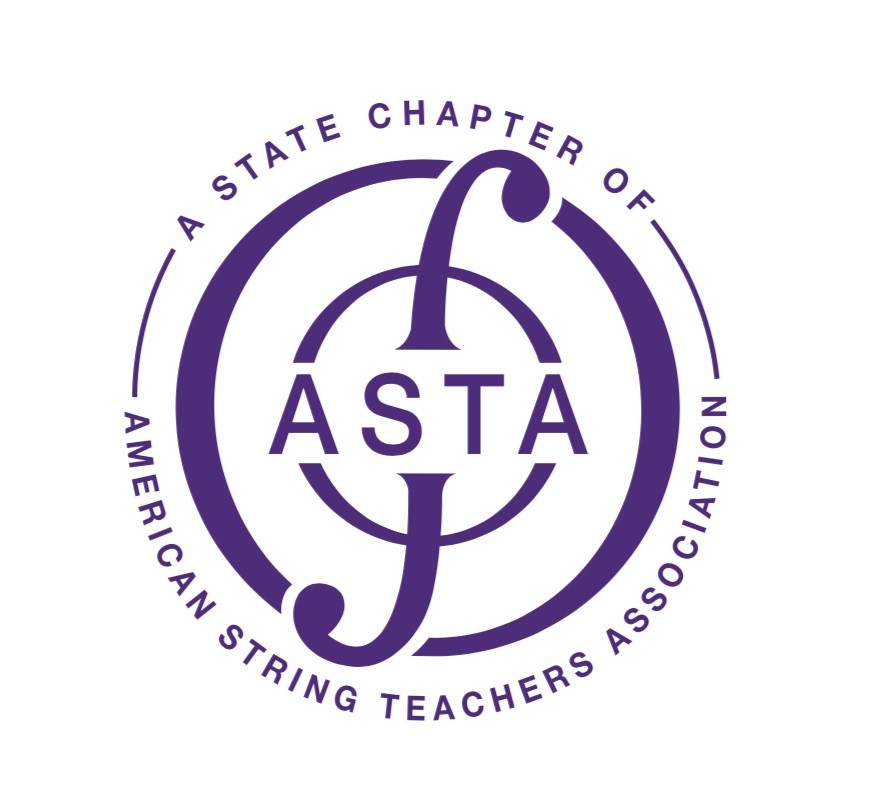Registration Fees:
Foundation – Level 3 $35
Level 4 – 6 $40
Level 7 – 8 $45
Level 9 – 10 $50
Follow these 2 steps to complete registration for your students.
1. Click on a link below to register for the exam. After completing each student’s registration, you will receive a confirmation email which includes a link to allow you to make corrections or changes any time before the registration deadline. Any other changes or corrections can be sent to Mark Pfannschmidt, who will also answer requests from teachers about other instruments (bass, guitar or harp).
2. Make out ONE check for the total fees payable to ASTA MD/DC.
For Winter Exams, send checks to:
Julianna Chitwood
403 Denham Rd
Rockville, MD 20851
For Spring Exams, send checks to:
Lya Stern
7012 Hopewood St
Bethesda, MD 20817
The ASTA Certificate Advancement Program (ASTACAP) provides students with an incremental means of achieving playing goals, motivating them to persevere and excel in their instrument studies.
• There are eleven levels of graded curricula for violin, viola, cello, bass, and harp. (Guitar requirements to come later.)
• The requirements and repertoire for each instrument are available on the ASTA National Website. Please be sure to have your ASTA user name and password available to gain access to these files.
• Please email the ASTACAP Chair if you have questions about repertoire not listed.
Click here for a PDF file of FAQs and other necessary ASTACAP information that you should be familiar with.
• ASTACAP provides definite goals and awards for all students, from beginner to advanced levels, through non-competitive examinations.
• Students are judged on technical and musical preparedness at specific levels—Foundation Level through Level 10—by an examiner of musical and pedagogical stature.
• Each level is defined by a set of technical and musical goals (for instance: starting vibrato, third position, sense of style), along with corresponding study material.
• Completion of each level is demonstrated at a performance exam. The student plays one or more pieces, an etude, scales, and arpeggios. The student is also asked to sight read.
• The student’s success is recognized by ASTA with the awarding of a Certificate of Achievement for each level successfully completed.
Teachers of all traditions find that ASTACAP complements and strengthens their programs. As a result of its great success in several ASTA state chapters, it was adopted as a national program in 2004. Benefits to ASTACAP teachers and students include, but are not limited to:
• Uniformity of expectations between states.
• Continual feedback through an examiner’s comments on student progress.
• Documentation of achievements that can be used when applying to youth orchestras, summer music camps, and college admission.
• Professionally designed and printed certificates for students.
• Member access to the ASTACAP handbook online. (PDF format.)
• Access to a marketing brochure about the ASTACAP program to usefor recruitment. (PDF format.)
• Use of a specially designed ASTACAP logo for teachers to use on materials and cards.
• Listing of participating teachers on the ASTA national website.
A Short History
ASTACAP (formerly, the Certificate Program for Strings) was developed and introduced by highly experienced pedagogues of the ASTA MD/DC Chapter in 1998 under the leadership of Lya Stern, who was the state chapter president at that time. Other members of MD/DC Chapter who were the original committee members and contributors are: Margaret Wright, Judith Shapiro, Elsa Brandt, Lisa Cole Sadowski, Ronald Mutchnik, Judith Silverman, Mark Pfannschmidt, Cecylia Barczyk, Denise Nathanson, Bai Chi Chen, Eleanor Woods, Patricia Braunlich, Catherine Stewart, Margaret Motter Ward, and Lorraine Combs.
The program was designed to support studio teachers’ quest for commitment to long-term instrumental study and higher standards of performance on the part of their students. Although similar programs have been used with great success in Canada, Great Britain, and Australia, the CAP was the first one designed for American string teachers and students. Hallmark characteristics of the American program are: a graded list for each instrument, flexibility in the choice of repertoire presented for exams, and the utilization of string specialists as examiners.
Lya Stern organized and has subsequently run the exams, which have been held annually in Maryland or the District of Columbia since 1998. In 2001, the CAP was introduced to New Jersey by Leslie Webster, then ASTA/NJ President, and in Virginia by Lynne Denig, then VASTA President-elect.
With Lya as the leading advocate of the CAP on the national level, along with Leslie and Lynne, the three together formed the committee that made annual presentations at national ASTA conferences and became the guiding force for the introduction of the program in several additional states: Florida and Hawaii in 2003, and Oregon, Washington, and Wisconsin in 2005. To date, thousands of students have taken the CAP exams, and their teachers are enjoying their students’ growing progress.
ASTACAP received the enthusiastic support of ASTA National Presidents Robert Jesselson, David Littrell and Robert Gillespie. Anticipating the long-reaching benefits that the program would bring to teachers and students of stringed instruments, the ASTA National Executive Board voted to adopt it as an ASTA-sponsored program in 2004.
The ASTACAP Handbook, offered to all ASTA members, is available for download on the National ASTA website, Certificate Advancement Program page. It is the result of hundreds of hours of work by members of the committee, reviewing the levels, expanding the Curriculum Guide, streamlining the rules, devising simple and easy ways for starting the program and providing all instructions and necessary forms for doing so.

